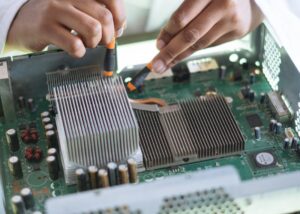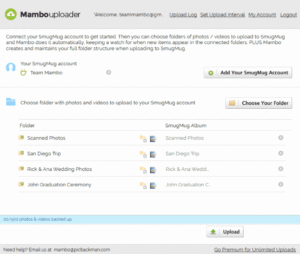-
Table of Contents
“Accurate and Reliable: Master the Art of Measuring Internet Speed”
Introduction: Measuring the speed of your internet connection accurately is crucial for understanding its performance. By following the correct method, you can obtain reliable results that reflect the true speed of your internet.
The Importance of Accurate Internet Speed Measurements
The Importance of Accurate Internet Speed Measurements
In today’s digital age, having a fast and reliable internet connection is crucial. Whether you are streaming movies, playing online games, or conducting business online, a slow internet speed can be frustrating and hinder your productivity. That is why it is essential to accurately measure the speed of your internet connection. By doing so, you can identify any issues and take the necessary steps to improve your internet speed.
One of the main reasons why accurate internet speed measurements are important is to ensure that you are getting what you pay for. Internet service providers (ISPs) often advertise certain speeds, but in reality, the actual speed you receive may be lower. By measuring your internet speed, you can compare it to the advertised speed and hold your ISP accountable if there is a significant discrepancy.
Accurate internet speed measurements also help you troubleshoot any connectivity issues you may be experiencing. If you notice that your internet speed is consistently slower than expected, it could indicate a problem with your network setup or equipment. By measuring your internet speed regularly, you can pinpoint the source of the issue and take appropriate action, such as upgrading your router or contacting your ISP for assistance.
Furthermore, accurate internet speed measurements are essential for determining whether your current internet plan meets your needs. If you find that your internet speed is consistently inadequate for your online activities, it may be time to consider upgrading to a higher-speed plan. Conversely, if you are paying for a high-speed plan but consistently measure slower speeds, you may be able to negotiate a lower monthly fee with your ISP or switch to a more reliable provider.
To accurately measure the speed of your internet connection, there are several methods you can use. One common method is to use an online speed test tool. These tools are readily available and provide a quick and easy way to measure your internet speed. Simply visit a reputable speed test website, click the “Start” button, and wait for the test to complete. The tool will measure your download and upload speeds, as well as your ping or latency.
Another method to measure your internet speed is to use specialized software or apps. These tools often provide more detailed information about your internet connection, such as packet loss and jitter. They can be particularly useful if you are experiencing frequent buffering or lag during online activities. However, keep in mind that these tools may require installation and may not be as user-friendly as online speed test tools.
When measuring your internet speed, it is important to consider a few factors that can affect the accuracy of the results. First, ensure that you are the only one using the internet during the test. Other devices or users on your network can consume bandwidth and affect the results. Additionally, perform multiple tests at different times of the day to account for any fluctuations in internet speed due to network congestion.
In conclusion, accurate internet speed measurements are crucial for ensuring that you are getting the speed you pay for, troubleshooting connectivity issues, and determining whether your current internet plan meets your needs. By using online speed test tools or specialized software, you can easily measure your internet speed and take appropriate action to improve your internet experience. Remember to consider factors that may affect the accuracy of the results and perform tests at different times to get a comprehensive understanding of your internet speed.
Understanding Different Internet Speed Testing Methods
In today’s digital age, having a fast and reliable internet connection is essential. Whether you use the internet for work, entertainment, or staying connected with loved ones, slow internet speeds can be frustrating and hinder your productivity. Therefore, it is crucial to accurately measure the speed of your internet to ensure you are getting the service you are paying for.
There are several different methods available to measure internet speed, each with its own advantages and limitations. Understanding these methods can help you choose the most appropriate one for your needs.
One commonly used method is the speed test website. These websites provide a simple and convenient way to measure your internet speed. All you need to do is visit the website and click on the “Start Test” button. The website will then measure your download and upload speeds, as well as your ping or latency. This method is user-friendly and provides quick results, making it a popular choice for many users.
However, it is important to note that speed test websites may not always provide accurate results. Factors such as server location, network congestion, and the performance of your device can all affect the results. Additionally, some internet service providers may optimize their network for speed test websites, leading to artificially inflated results. Therefore, while speed test websites can give you a general idea of your internet speed, they should not be considered the definitive measurement.
Another method to measure internet speed is through the use of specialized software. These software programs are designed to provide more detailed and accurate measurements of your internet speed. They often offer additional features such as real-time monitoring, historical data, and the ability to test multiple devices simultaneously. This method is particularly useful for advanced users or those who require precise measurements for specific purposes.
However, using specialized software may require more technical knowledge and can be time-consuming. It may also require you to install additional software on your device, which may not be feasible for everyone. Therefore, while this method can provide more accurate results, it may not be suitable for all users.
An alternative method to measure internet speed is through the use of mobile apps. Many internet service providers offer their own mobile apps that allow you to test your internet speed directly from your smartphone or tablet. These apps are convenient and can provide accurate results, especially if you are primarily using your mobile device to access the internet.
However, it is important to note that mobile apps may not always provide the same level of accuracy as other methods. Factors such as network coverage, device performance, and background processes can all affect the results. Therefore, while mobile apps can be a useful tool, they should be used in conjunction with other methods to ensure accurate measurements.
In conclusion, accurately measuring the speed of your internet is crucial to ensure you are getting the service you are paying for. There are several different methods available, each with its own advantages and limitations. Speed test websites provide a quick and convenient option, while specialized software offers more detailed measurements. Mobile apps are a convenient choice for mobile device users. By understanding these different methods, you can choose the most appropriate one for your needs and ensure you have a fast and reliable internet connection.
Common Mistakes to Avoid When Measuring Internet Speed
Measuring the speed of your internet connection is an essential task for anyone who relies on a stable and fast internet connection. Whether you use the internet for work, streaming, or simply browsing the web, knowing the speed of your connection can help you troubleshoot any issues and ensure you are getting the service you are paying for. However, there are common mistakes that people often make when measuring their internet speed, which can lead to inaccurate results. In this article, we will discuss these mistakes and provide you with the correct way to measure the speed of your internet.
One common mistake people make when measuring their internet speed is relying on a single test. It is important to understand that internet speed can vary throughout the day due to various factors such as network congestion and the number of devices connected to your network. Therefore, it is recommended to perform multiple tests at different times of the day to get a more accurate average speed. This will give you a better understanding of the consistency of your internet connection.
Another mistake to avoid is not considering the location of the test server. When you perform an internet speed test, the test server is responsible for measuring the speed of your connection. If the test server is located far away from your actual location, it can introduce latency and affect the accuracy of the results. To get a more accurate measurement, it is recommended to choose a test server that is geographically close to your location. This will minimize any potential latency issues and provide a more realistic representation of your internet speed.
Furthermore, it is important to ensure that no other devices are using your internet connection while conducting the speed test. Other devices, such as smartphones, tablets, or smart TVs, can consume bandwidth and affect the results of the test. To get an accurate measurement, it is best to disconnect any unnecessary devices from your network and close any applications that may be using the internet.
Additionally, using a wireless connection instead of a wired connection can also lead to inaccurate results. Wireless connections are susceptible to interference from other devices and can be affected by the distance between your device and the router. To get the most accurate measurement, it is recommended to connect your device directly to the router using an Ethernet cable. This will eliminate any potential interference and provide a more reliable measurement of your internet speed.
Lastly, it is important to consider the limitations of your internet service provider. Internet service providers often advertise their speeds as “up to” a certain number, which means that the actual speed you receive may be lower than what is advertised. Factors such as network congestion and the quality of the infrastructure can affect the actual speed you receive. Therefore, it is important to compare your measured speed with the speed promised by your internet service provider to ensure you are getting the service you are paying for.
In conclusion, measuring the speed of your internet connection is crucial for ensuring a reliable and fast internet experience. By avoiding common mistakes such as relying on a single test, considering the location of the test server, disconnecting unnecessary devices, using a wired connection, and understanding the limitations of your internet service provider, you can accurately measure the speed of your internet and troubleshoot any issues that may arise.
How to Choose the Right Internet Speed Testing Tool
In today’s digital age, having a fast and reliable internet connection is essential. Whether you use the internet for work, entertainment, or staying connected with loved ones, slow internet speeds can be frustrating and hinder your productivity. Therefore, it is crucial to accurately measure the speed of your internet to ensure you are getting the service you are paying for.
When it comes to measuring internet speed, there are numerous tools available online. However, not all of them are created equal, and choosing the right one is essential to obtain accurate results. In this article, we will discuss how to choose the right internet speed testing tool and ensure that you are measuring your internet speed correctly.
First and foremost, it is important to understand that internet speed can vary throughout the day due to various factors such as network congestion and the number of devices connected to your network. Therefore, it is recommended to perform multiple speed tests at different times to get a more accurate average speed.
When selecting an internet speed testing tool, it is crucial to choose a reputable and reliable one. There are several well-known and trusted speed testing tools available, such as Ookla’s Speedtest, Fast.com by Netflix, and Google’s Measurement Lab. These tools have been widely used and have a proven track record of providing accurate results.
Once you have chosen a speed testing tool, it is important to ensure that you are conducting the test correctly. To get accurate results, it is recommended to connect your device directly to your modem or router using an Ethernet cable. This eliminates any potential interference from Wi-Fi signals and provides a more accurate measurement of your internet speed.
Before starting the speed test, it is advisable to close any unnecessary applications or programs running in the background. These applications can consume bandwidth and affect the accuracy of the test results. Additionally, it is recommended to temporarily disable any VPN or proxy services you may be using, as they can also impact the test results.
When conducting the speed test, it is important to be patient and let the test run its course. The test typically measures three key metrics: download speed, upload speed, and ping. Download speed refers to the rate at which data is transferred from the internet to your device, while upload speed measures the rate at which data is transferred from your device to the internet. Ping, on the other hand, measures the time it takes for a data packet to travel from your device to a server and back. All three metrics are important in determining the overall speed and quality of your internet connection.
After the test is complete, the speed testing tool will provide you with the results. These results typically include your download speed, upload speed, and ping, along with additional information such as your IP address and internet service provider. It is important to compare these results with the speed promised by your internet service provider to ensure you are getting the service you are paying for.
In conclusion, accurately measuring the speed of your internet is crucial to ensure you are getting the service you are paying for. By choosing a reputable speed testing tool, conducting the test correctly, and comparing the results with your internet service provider’s promised speed, you can ensure that you have a fast and reliable internet connection. So, take the time to measure your internet speed correctly and enjoy a seamless online experience.
Tips for Optimizing and Improving Your Internet Speed Measurement Accuracy
In today’s digital age, having a fast and reliable internet connection is crucial. Whether you use the internet for work, entertainment, or staying connected with loved ones, slow internet speeds can be frustrating and hinder your productivity. To ensure that you are getting the most out of your internet service, it is important to accurately measure your internet speed. In this article, we will discuss some tips for optimizing and improving your internet speed measurement accuracy.
First and foremost, it is essential to understand what internet speed actually means. Internet speed refers to the rate at which data is transferred from the internet to your device, and vice versa. It is typically measured in megabits per second (Mbps). The higher the Mbps, the faster your internet connection will be.
When it comes to measuring your internet speed, there are several online tools available that can provide you with accurate results. One popular tool is Ookla’s Speedtest. This tool allows you to measure your internet speed by simply clicking a button. It will then provide you with your download and upload speeds, as well as your ping. Ping refers to the time it takes for data to travel from your device to a server and back. A lower ping indicates a more responsive internet connection.
To ensure accurate results, it is important to close any unnecessary applications or programs that may be using your internet bandwidth. This will help eliminate any interference and provide a more accurate measurement of your internet speed. Additionally, it is recommended to perform the speed test multiple times at different times of the day. Internet speeds can vary depending on the time of day and the number of users on your network. By performing multiple tests, you can get a better understanding of your average internet speed.
Another tip for improving your internet speed measurement accuracy is to connect your device directly to your modem or router using an Ethernet cable. Wi-Fi connections can be affected by various factors such as distance from the router, interference from other devices, and signal strength. By using an Ethernet cable, you can eliminate these variables and get a more accurate measurement of your internet speed.
It is also important to consider the limitations of your internet service provider (ISP). ISPs often advertise their internet speeds as “up to” a certain Mbps. This means that you may not always achieve the maximum speed advertised. Factors such as network congestion, distance from the ISP’s server, and the quality of your wiring can affect your actual internet speed. It is important to keep these factors in mind when measuring your internet speed.
In conclusion, accurately measuring your internet speed is essential for optimizing your internet connection. By using reliable online tools, closing unnecessary applications, performing multiple tests, connecting directly to your modem or router, and considering the limitations of your ISP, you can ensure that you are getting the most accurate measurement of your internet speed. With this knowledge, you can make informed decisions about your internet service and take steps to improve your internet speed if necessary. Remember, a fast and reliable internet connection is key in today’s digital world.
Q&A
1. How can I accurately measure the speed of my internet?
You can use online speed testing tools or download dedicated speed testing apps to measure your internet speed.
2. What factors can affect the accuracy of internet speed measurements?
Factors such as network congestion, the device you’re using, Wi-Fi signal strength, and the server location of the speed testing tool can affect the accuracy of measurements.
3. Should I perform multiple speed tests to get an accurate measurement?
Performing multiple speed tests at different times and on different days can help provide a more accurate average measurement of your internet speed.
4. What is a good internet speed for everyday use?
A good internet speed for everyday use depends on your specific needs, but generally, a download speed of at least 25 Mbps and an upload speed of 3 Mbps should be sufficient for most activities.
5. How can I improve my internet speed if it’s slower than expected?
You can try troubleshooting steps such as restarting your modem/router, connecting to a wired connection, optimizing your Wi-Fi signal, or contacting your internet service provider for assistance.In conclusion, measuring the speed of your internet correctly involves using reliable speed testing tools, connecting your device directly to the modem or router, ensuring no other devices are using the network, and conducting multiple tests at different times of the day.









